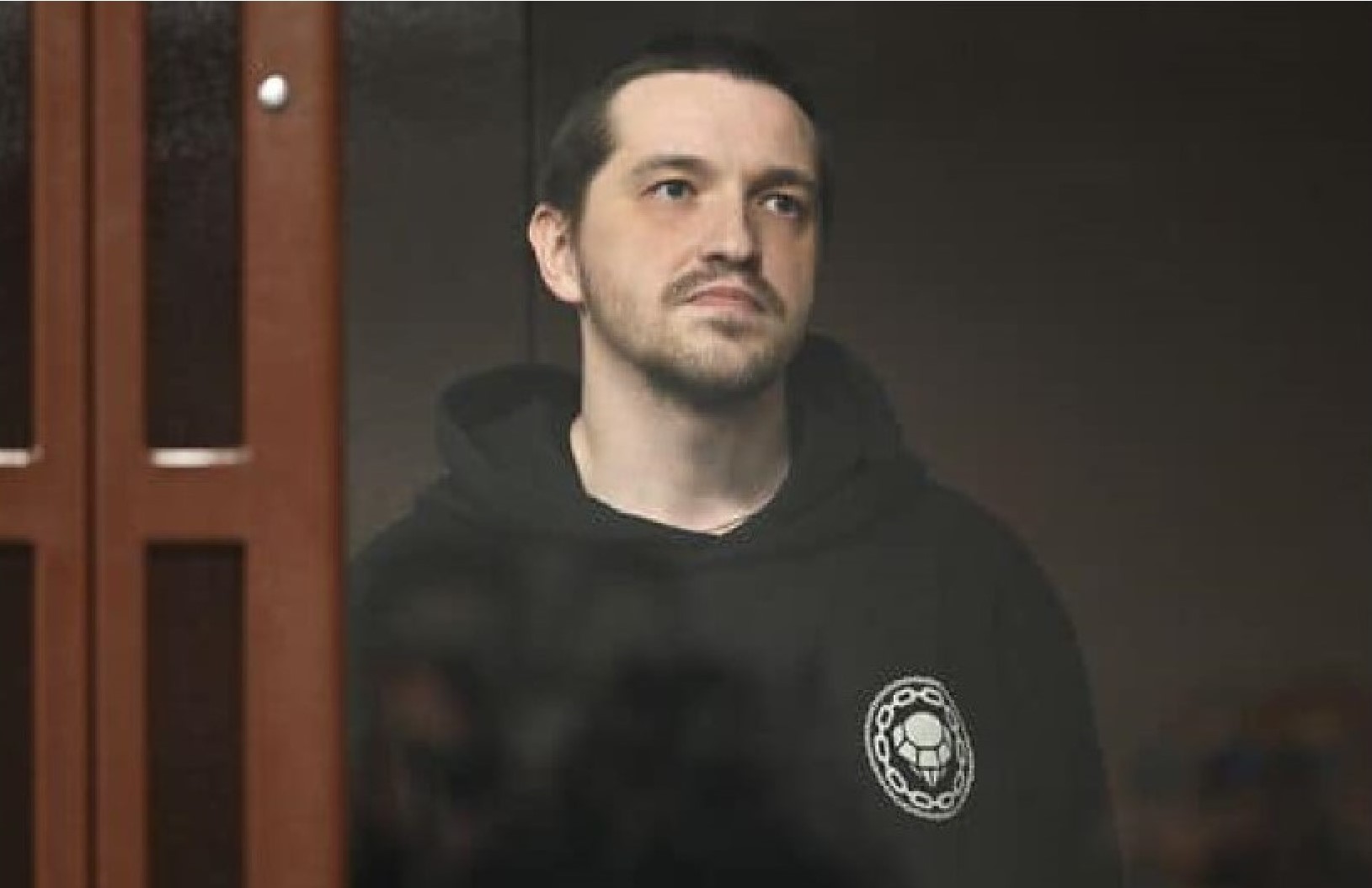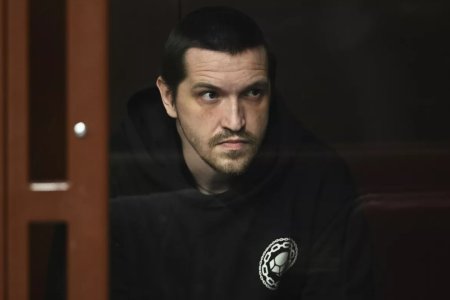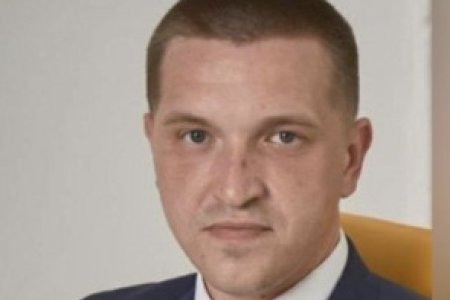
Pavlo Zaporozhets is turning 35 on 19 May 2025 in Russian captivity, almost exactly three years after he was seized by the Russian invaders of his native Kherson. He was the first victim of Russia’s use of a new, and particularly cynical, charge, with Ukrainians living in their own country accused under the legislation of the invaders’ state with ‘international terrorism’. A third Russian ‘court’ has now upheld his 12-year sentence, ignoring the torture he was subjected to; his prisoner of war status; and the illegality of the charges that the aggressor state had brought against him.
According to Pavlo’s sister, Lilia Zaporozhets, a cassation appeal hearing was held on 15 May 2025, with this leaving the 12-year sentence unchanged. This is not quite the last legal avenue in Russia, with Pavlo’s lawyer planning to lodge an appeal against this ruling with the Russian Supreme court’s cassation chamber.
There were clearly no illusions about the 15 May cassation hearing, and the same probably applies to the next. For the family, however, the hearing was the first opportunity, after agonizing silence, to see that Pavlo was . He himself was not brought to the closed hearing and only took part by video link from the Vladimir Central Prison where he has been imprisoned since 1 October 2024. The family had not heard anything from him since the beginning of April this year, and learned on 15 May that this must have been due to the prison censor as Pavlo had written three or four letters each month. There was no way of finding out any details about the conditions in the prison as a prison guard was standing by Pavlo, and reprisals would, doubtless, have been swift and brutal for telling the truth.
All Pavlo’s books and personal items were taken from him during the move from the SIZO [remand prison] where he had been held until the original appeal was rejected. Lidia paid a subscription so that her brother could receive journals by Russian post, however he has not received these, although the postal service say that they were delivered. Other Ukrainians illegally imprisoned also complain of the same thing. While this may, in part, be gratuitous cruelty, Russia has gone out of its way to hold all Ukrainian political prisoners in an information vacuum since 2014.
Pavlo is in a cell with a Ukrainian prisoner of war, whose relatives are in contact with his. The POW’s family sent a parcel with books, yet these too were confiscated by the prison guards. This is particularly serious as there are draconian restrictions on all parcels in Vladimir Central and other such prisons. The men are only allowed one 20-kg parcel a year, and one 5-kg parcel for written material – most of which, clearly, does not even reach them. In addition, there are strict limits on the very small amount that they can spend using the online shop, with such purchases then taking up to two weeks to appear. Even without the especially bad treatment meted out to Ukrainians, the conditions in any Russian penal institution are appalling, and the parcels and access to purchases are essentially vital to survival. It is no accident that Ukrainian prisoners of war and civilians abducted from occupied territory and then sentenced on fabricated charges are often dangerously emaciated.
Pavlo Zaporozhets is a former war veteran, who defended Ukraine in Donbas from 2014 -2017. After Russia’s full-scale invasion of Ukraine and seizure of Kherson, he joined HUR, the Ukrainian Armed Forces’ Military Intelligence, and was serving in that capacity when seized by the Russians on 9 May 2022.
He was held incommunicado for three months, first in Kherson, then in Crimea, with the Russians using this period to savagely torture him in order to extract a supposed ‘confession’. He initially had only a ‘lawyer’ appointed by the FSB, with these individuals typically there to sign papers, and / or encourage the person detained to agree to the charges.
He was later to be represented by Alexei Ladin, one of the Russian lawyers who, like his Crimean Tatar colleagues, has faced persecution for his tireless defence of Ukrainian political prisoners. Both Zaporozhets and Ladin have pointed out since Russia first admitted to holding the Ukrainian that he is a prisoner of war, who was carrying out his duties, and must not, under international law, be prosecuted for doing so. Instead of acknowledging this, Russia concocted charges under the relatively new Article 361 of Russia’s criminal code. The aggressor state, which invaded and seized Zaporozhets’ native city, claimed that the Ukrainian committed ‘an act of international terrorism’ by trying to resist and obstruct the invaders..
The cynicism of this charge can be seen in the application made by Ladin to have the prosecution terminated. In it, he wrote: “Zaporozhets, as a current serviceman in Ukraine’s Armed Services, was carrying out a military order. According to this, his task was to carry out an explosion along the path that a military patrol of the Russian armed forces was travelling during the night. This was while a curfew was in place, which precluded any risk to the life and health of Russian and Ukrainian civilians. Furthermore, on 9 May 2022, Kherson was de jure and de facto territory of the foreign state of Ukraine, and the presence there of Russian civilians was precluded.”
All of this was ignored, with the indictment passed to Russia’s Southern District Military Court in Rostov and the trial beginning in February 2023. The court has been notorious for persecution of Ukrainians since 2014, and both presiding judge, Maksym Mikhailovich Nikitin and prosecutors Igor Vladimirovich Nadolinsky and Vladislav Viacheslav Kuznetsov had previously played major roles in obtaining huge sentences against many Crimean Tatar and other Ukrainian political prisoners,
On 30 November 2023, the court found Zaporozhets guilty of a purported ‘act of international terrorism’ under Articles 361 § 1 and 30 § 3 of Russia’s criminal code. It sentenced him to 12 years in a harsh-regime prison colony, with the first three years in a prison, the worst of all Russian penal institutions. The appeal was ‘heard’ and rejected by Russia’s military court of appeal in Vlasikha (Moscow region) on 19 June 2024, with the lawless verdict and sentence now upheld by a third, cassation, court.
During one of the hearings, Zaporozhets reiterated that the prosecution’s claim that his actions had been directed against “Ukrainian and Russian civilians” was nonsense. On the contrary, the act had been deliberately planned for late at night when there was a curfew in place in occupied Kherson in order to ensure that there were no civilian victims. He stated: “A crime was indeed committed in Kherson, but not by me, a citizen of Ukraine who was defending his country, but by the Russian soldiers who abducted and tortured me and then took me to the Autonomous Republic of Crimea”.



